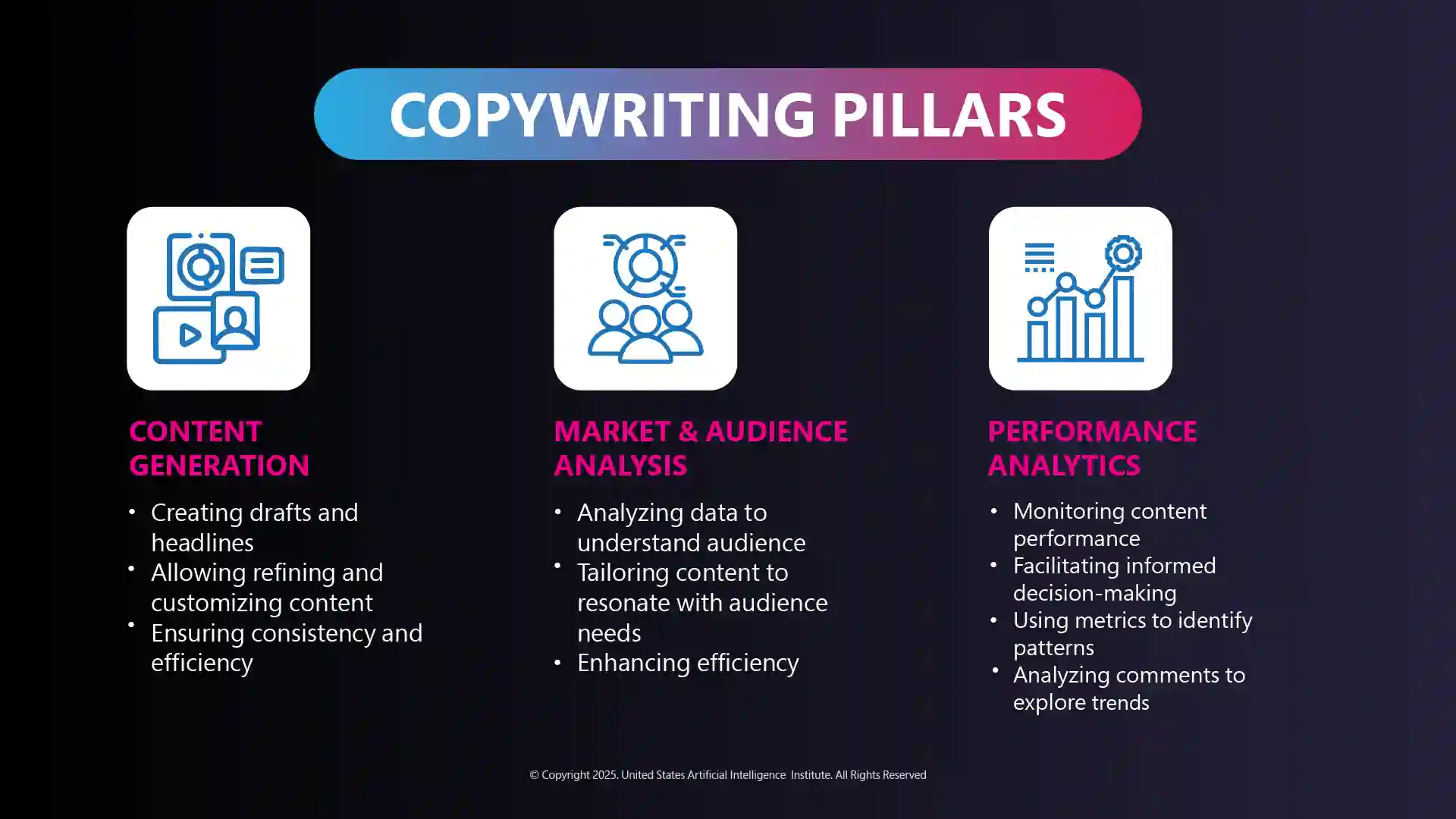
In today’s rapidly evolving business environment, industries are constantly seeking innovative ways to maintain competitiveness and meet customer demands. One sector that has undergone significant transformation due to AI is the copywriting industry. AI possesses remarkable capabilities to generate content, analyze user engagement, and discern market trends. In this article, I delve into the profound impact of AI on the copywriting sector, alongside the challenges and ethical considerations that arise from its integration.
The Progression of AI
Copywriting has long been a cornerstone of advertising, focusing on crafting persuasive content to promote products and services. Traditionally, copywriting relied entirely on human creativity and expertise. Copywriters dedicated their efforts to brainstorming, drafting, and refining content to resonate with their target audience. However, the advent of AI has ushered in new opportunities and transformed the landscape of the copywriting industry.
The copywriting industry has been continuously evolving, shaped by changing consumer needs, market trends, and technological advancements. Staying ahead in this dynamic environment requires agility and informed decision-making. AI offers a plethora of tools to enhance creativity, effectiveness, and automation of tasks while delivering market insights that enable copywriters to adapt to ongoing changes.
The Role of AI in Improving Copywriting Business
Efficient copywriting is essential for maintaining customer engagement and fostering brand loyalty. AI tools and techniques empower copywriters to achieve these goals and enhance outcomes. By leveraging natural language processing algorithms, AI enables copywriters to generate high-quality content more effectively. This automation streamlines content creation processes, freeing copywriters to focus on strategic tasks.
Pillars of AI Copywriting
I can classify the application of AI in the copywriting industry into three categories (See Fig. 1):
1. Content generation: AI tools excel in content generation by creating drafts, headlines, and even complete articles based on user inputs. This capability allows copywriters to concentrate on refining and customizing content to meet customer needs. Moreover, AI ensures consistency and maintains brand voice integrity, crucial for brand identity. In essence, AI-powered tools enhance efficiency and save valuable time.
2. Market and audience analysis: Understanding the audience is fundamental to effective copywriting. AI possesses the capability to analyze vast amounts of data to discern audience preferences and behaviors. For instance, in an e-commerce setting offering a wide range of products, marketers can utilize AI to analyze data from sources like website visits, social media posts, and customer reviews. This enables copywriters to tailor their content to resonate with customer needs, thereby enhancing efficiency.
3. Performance analytics: AI-powered analytics enable marketers to monitor content performance across multiple platforms and receive real-time feedback, facilitating informed decision-making. Marketers utilize metrics to identify patterns, employ sentiment analysis to analyze comments, and uncover market trends. This capability enables marketers to effectively meet customer demands and adapt to current market trends.
These pillars enable copywriters to create content that closely matches the demands of their audience, increases engagement, and builds stronger connections with them.

Challenges to Integrate AI in Copywriting
While AI offers significant benefits to copywriters, its integration into copywriting presents challenges. Ensuring the quality of data used to train AI systems is critical, as poor-quality data can lead to misleading or inaccurate insights. Therefore, businesses must prioritize data integrity through robust data management practices.
From another perspective, AI lacks the human touch in generated content. Although AI can produce grammatically and contextually correct text, it often lacks the innovative spark brought by human writers. To address this issue, AI should be employed as a tool that enhances human writing rather than replacing it entirely. Copywriters can play a crucial role by adding their unique perspectives and creativity to drafts generated by AI-powered tools.
While AI is a powerful tool, it's important to consider the costs associated with developing AI systems, which can sometimes be a barrier, particularly for smaller businesses. However, we are witnessing a trend where the costs of AI systems are decreasing, making them more accessible to a wider audience. Nevertheless, the need to develop new AI systems tailored to the specific requirements of small businesses can still pose a challenge.
The Impact of AI on Copywriting Jobs
The significant rise of AI in the copywriting industry has sparked concerns about AI replacing humans. However, rather than displacing copywriters, AI appears to be transforming the copywriting process. AI can automate numerous tasks such as initial drafting and data collection, enabling copywriters to concentrate on strategy development and infusing a human touch into the generated content. For instance, HubSpot, a prominent marketing provider, offers a comprehensive suite of tools for customer relationship management (CRM), social media marketing, and content management.
Furthermore, AI can enhance the copywriting environment, necessitating that copywriters acquire new skills. These skills encompass proficiency in utilizing AI tools and developing data analysis capabilities using AI. Embracing these skills empowers copywriters to enhance their work and deliver compelling content to their organizations. For example, Monetized Marketing provides educational courses that teach innovative techniques leveraging AI for content creation. These courses offer valuable insights into using AI tools to generate headlines, craft persuasive content, and analyze overall content performance.
Ethical Considerations
As AI becomes integral to the copywriting industry, ethical considerations are increasingly crucial. Issues like data privacy and biases in AI algorithms require careful attention. It is imperative for businesses to maintain high-quality data to mitigate biases in AI outcomes. Moreover, businesses must ensure that their AI practices adhere to ethical standards and regulations to foster trust with their customers.
Conclusions
The integration of AI into the copywriting business is revolutionizing content creation. AI provides numerous tools that can help copywriters improve efficiency, boost creativity, and deliver highly personalized content to customers. However, it is crucial to implement these strategies carefully to ensure that accompanying challenges are effectively addressed.
Looking ahead, the integration of AI in copywriting is poised to bring substantial changes to the industry. AI is expected to play a crucial role in customizing content, predicting market trends, and creating new opportunities for copywriters to deliver innovative content and exceptional value to their customers.
In conclusion, AI is more than just a tool for automating tasks; it offers significant value that can transform the copywriting industry. Through AI integration, copywriters can gain insights into marketing trends, achieve their goals, and enhance competitiveness. It is crucial for copywriters to blend human creativity with AI capabilities to unlock new potential in the copywriting industry.
Follow us: